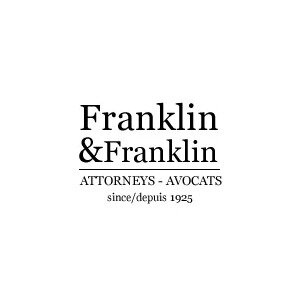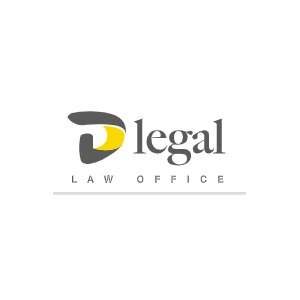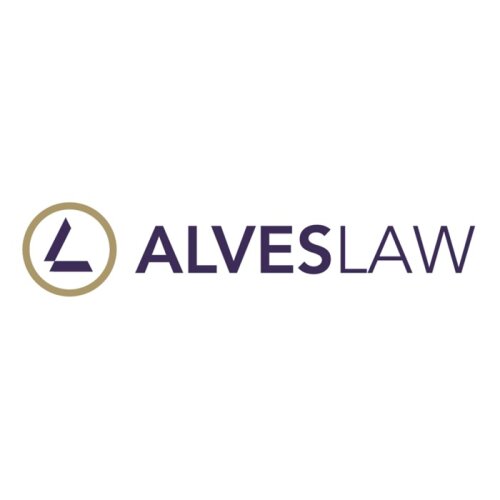Best Child Abuse Lawyers in Canada
Share your needs with us, get contacted by law firms.
Free. Takes 2 min.
Free Guide to Hiring a Family Lawyer
Or refine your search by selecting a city:
List of the best lawyers in Canada
About Child Abuse Law in Canada
Child abuse in Canada encompasses various forms of harm inflicted upon children, including physical, emotional, and sexual abuse, as well as neglect. The legal framework for protecting children from abuse is governed by both federal and provincial/territorial laws. The Criminal Code of Canada serves as the primary federal legislation targeting child abuse offenses, while provincial and territorial child protection statutes focus on the welfare of children within those jurisdictions. Law enforcement agencies and child welfare organizations work together to prevent and respond to cases of child abuse, ensuring the safety and well-being of children across the country.
Why You May Need a Lawyer
There are several situations where legal assistance may be necessary in cases of child abuse:
- Accusations of child abuse against an individual, requiring defense to ensure a fair trial and protect their rights.
- Representing a child or family in child protection proceedings initiated by child welfare agencies.
- Seeking legal remedies and protection orders for victims of abuse within the family environment.
- Facilitating custody and access decisions in family law disputes involving allegations of abuse.
- Assisting in reporting child abuse and navigating the legal process for concerned third parties or mandated reporters.
Local Laws Overview
The key aspects of child abuse laws in Canada include:
- Criminal Code of Canada: Defines offenses related to child abuse, including assault, sexual assault, and neglect. It prescribes penalties for offenders and provides mechanisms for protecting children.
- Provincial/Territorial Child Protection Laws: Each province and territory has its own child protection legislation that mandates the prevention of harm and provides procedures for intervention by child welfare services.
- Mandatory Reporting: Many jurisdictions require certain professionals, such as teachers and healthcare providers, to report suspected child abuse to authorities.
- Family Law: The Divorce Act and provincial family laws address the best interests of the child, particularly in custody and access matters, involving allegations of abuse.
Frequently Asked Questions
What constitutes child abuse in Canada?
Child abuse in Canada includes physical abuse, emotional abuse, sexual abuse, and neglect. It involves any action or lack of action by a parent or caregiver that results in harm or potential harm to a child.
Who is responsible for reporting child abuse?
Mandatory reporting laws require certain individuals, such as teachers, healthcare professionals, and social workers, to report suspicions of child abuse to child protection agencies. However, any person can report suspected abuse to authorities.
What happens after a report of child abuse is made?
After a report is made, child protection services may investigate the claim. If the report is validated, intervention steps, including family support, counseling, or removing the child from harmful situations, may be taken to secure the child's safety.
Can a parent lose custody due to allegations of child abuse?
Yes, if child abuse is proven, it can significantly impact custody decisions. Canadian courts prioritize the child's best interests, and substantiated abuse can lead to restrictions or loss of custody for the offending parent.
What is the penalty for committing child abuse in Canada?
Penalties for child abuse vary depending on the nature and severity of the abuse, ranging from fines and probation to imprisonment. The Criminal Code outlines specific offenses and corresponding penalties.
Can past child abuse be prosecuted?
Yes, Canada has no statute of limitations for serious criminal offenses, including child abuse. This allows victims to report past abuse, and offenders can still be prosecuted.
How can a lawyer assist in a child abuse case?
A lawyer can provide representation, protect the legal rights of the parties involved, offer advice and assistance in navigating the legal process, and help ensure a fair outcome for victims and accused individuals.
What rights do children have in abuse cases?
Children have the right to protection, safety, and legal representation. Canadian laws emphasize the protection of children's welfare and provide mechanisms to uphold their rights in abuse cases.
How do child protection agencies determine if abuse has occurred?
Child protection agencies conduct investigations that may include interviews, medical examinations, and home visits to assess the validity of abuse allegations and determine the appropriate course of action.
What should I do if I suspect a child is being abused?
If you suspect child abuse, report your concerns to the local child protection agency or law enforcement. You do not need proof to make a report, and your identity can often be kept confidential.
Additional Resources
For more information and assistance, consider reaching out to the following resources:
- Child Abuse Helpline: Provides immediate support and referrals for child abuse victims.
- Local Child Protection Agencies: Contact the agency in your province or territory to report concerns or seek guidance.
- Legal Aid Services: Offers legal assistance and representation for individuals involved in child abuse cases who cannot afford private lawyers.
- Canadian Centre for Child Protection: A national charity dedicated to the personal safety of children.
- Public Legal Education and Information Services: Available in various provinces to provide legal information and resources.
Next Steps
If you require legal assistance for a child abuse case, consider taking the following steps:
- Assess Your Situation: Determine the nature of the child abuse issue you are facing and gather relevant information.
- Seek Legal Advice: Consult a lawyer who specializes in child protection or family law to discuss your options and get professional guidance.
- Contact Local Authorities: Report any active or suspected case of child abuse to the appropriate local agency or law enforcement.
- Utilize Support Services: Reach out to counseling and support services for emotional and psychological assistance.
- Document All Communications: Keep a record of all interactions with legal representatives and child protection services to ensure clarity and accountability.
Lawzana helps you find the best lawyers and law firms in Canada through a curated and pre-screened list of qualified legal professionals. Our platform offers rankings and detailed profiles of attorneys and law firms, allowing you to compare based on practice areas, including Child Abuse, experience, and client feedback.
Each profile includes a description of the firm's areas of practice, client reviews, team members and partners, year of establishment, spoken languages, office locations, contact information, social media presence, and any published articles or resources. Most firms on our platform speak English and are experienced in both local and international legal matters.
Get a quote from top-rated law firms in Canada — quickly, securely, and without unnecessary hassle.
Disclaimer:
The information provided on this page is for general informational purposes only and does not constitute legal advice. While we strive to ensure the accuracy and relevance of the content, legal information may change over time, and interpretations of the law can vary. You should always consult with a qualified legal professional for advice specific to your situation.
We disclaim all liability for actions taken or not taken based on the content of this page. If you believe any information is incorrect or outdated, please contact us, and we will review and update it where appropriate.
Browse child abuse law firms by city in Canada
Refine your search by selecting a city.
















